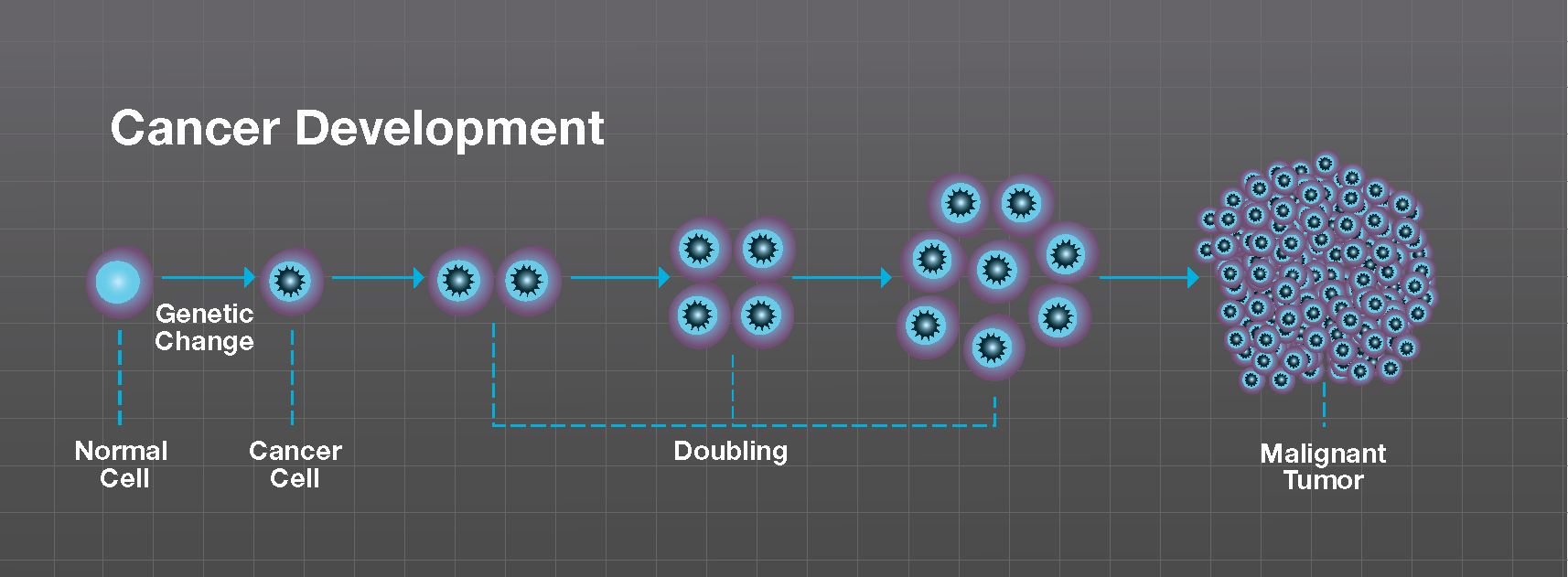
While there have been great advancements in understanding and treating brain tumors, the causes of brain tumors remain largely unknown. A fraction of the new brain tumor cases diagnosed each year are caused by rare genetic conditions. Age is considered a risk factor as well, with older people being diagnosed at a much higher rate than younger people. Research is ongoing into genetic and environmental factors that may contribute to the development of brain tumors.
Our brains are made up of countless living cells and we have genes that manage, or control, normal cell growth, division and death. This process is really rapid when we’re young to allow us to grow. As we get older, cell division mostly occurs to replace dying cells or to repair injuries.
When this normal cell cycle is disrupted for any reason, the old cells do not die but continue to grow and multiply into abnormal cells. Cancer cell growth is different from normal cell growth in that it is not regulated and cannot be controlled by normal checkpoints in the body that work on normal tissues. Sometimes these abnormal cells overrun normal tissues or invade surrounding brain structures.
A brain tumor forms when these abnormal cells grow, sometimes very rapidly, into an abnormal mass of tissue. The tumor can compress, shift or replace normal tissue, sometimes, but not always leading to signs and symptoms that lead you to seek medical attention. Sometimes tumors are discovered during the course of other medical examinations.
Tumors that form from the tissues of the brain are called primary tumors. These tumors can be either malignant or benign. A tumor that is benign is usually less aggressive and slower growing, but can become just as serious as a malignant tumor, and even life threatening, if it interferes with brain function. Some primary tumors, like glioblastoma multiforme may be linked to a person’s inherited genes. Primary tumors originate from cells that make up the brain and central nervous system and are usually named for those cells. The most common primary brain tumors are astrocytomas or gliomas.
Cancer cells can also ‘migrate’ to the brain, usually through the bloodstream, and cluster to form a malignant brain tumor. These tumors, while referred to sometimes as brain cancer, are technically called by the cancer of origin, e.g., lung or brain cancer that has spread to the brain. These cancers are called brain metastases.
Physiologically, you may not know you have a brain tumor. Visit our Investigate Brain Tumors section of the website to explore the Signs, Symptoms and Diagnosis of Brain Tumors more in depth.